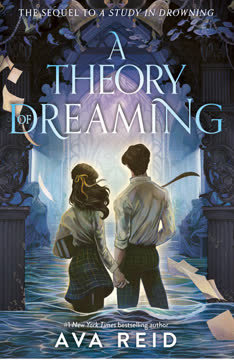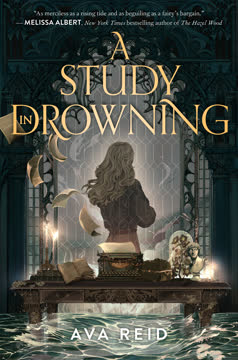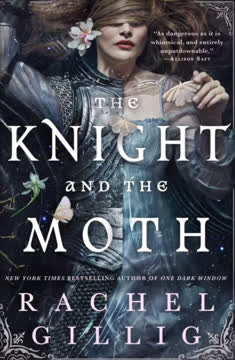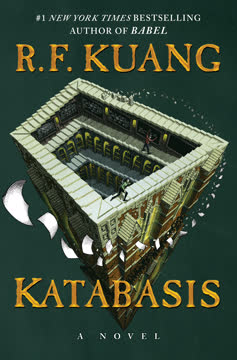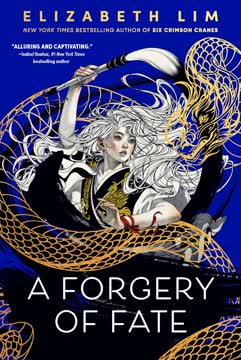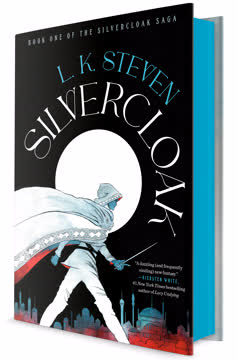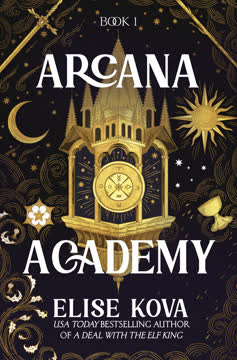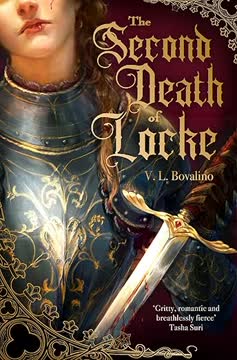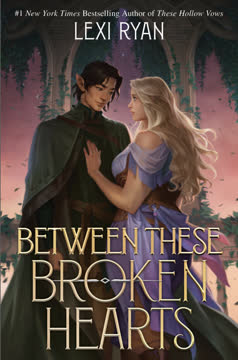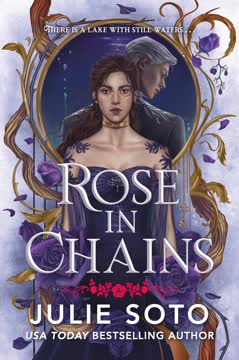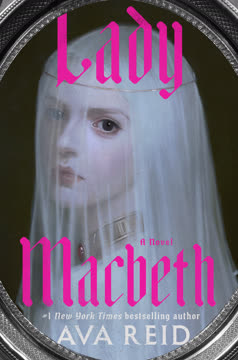Plot Summary
Shadows and Scandal
Effy Sayre, the first woman admitted to the University of Llyr's literature college, finds herself at the center of a storm. Alongside Preston Héloury, an Argantian student, she's accused of exposing a literary fraud: that the nation's beloved author, Emrys Myrddin, did not write his most famous novel, Angharad. The revelation threatens not just reputations but the very morale of a country at war. Effy faces suspicion, sexism, and xenophobia, her every move scrutinized by peers and the press. The university, a place of supposed enlightenment, becomes a crucible of old prejudices and new anxieties, forcing Effy and Preston to question their place in a world that seems determined to reject them.
The Truth Beneath Legends
Effy and Preston's investigation into Myrddin's legacy is more than academic—it's personal. They discover Angharad's true author was Myrddin's wife, Angharad Myrddin, whose diaries and letters reveal a life of erasure and suffering. The truth is dangerous: it undermines the mythic foundation of Llyr's national identity, especially as war rages. Effy, haunted by her own traumas and the weight of being a pioneer, finds solace and kinship in Angharad's words. Preston, meanwhile, is torn between loyalty to scholarship and the need to protect Effy from the consequences of their discoveries. Their quest for truth becomes a battle for survival, both within the university and within themselves.
Outsiders and Outcasts
Effy's first days in the literature college are marked by humiliation and alienation. The male students, uniformed and united, treat her as an interloper. Preston, as an Argantian, faces his own brand of hostility, especially as the war intensifies. Both are targeted by rumors, institutional policies, and the press—most notably the predatory reporter Finisterre. Their friendship, and budding romance, becomes a lifeline. Yet, the more they push against the university's traditions, the more they are pushed to the margins. The cost of being different is steep, and the world seems intent on reminding them of their vulnerability at every turn.
Dream Palaces and Nightmares
Preston begins to experience vivid, haunting dreams of a palace beneath the sea—a place of statues, bells, and impossible beauty. In these dreams, he encounters his lost father and a vision of Effy, both more real than memory. The dreams offer comfort but also terror, as the line between waking and sleeping erodes. Effy, meanwhile, struggles with insomnia and the numbing effects of medication, her own nightmares echoing the traumas of her past. The dream world becomes a metaphor for the stories they tell themselves—and the dangers of believing in illusions.
The Weight of History
The university's curriculum, focused on the epic Neiriad and the mythic Sleepers of Llyr, reinforces a narrative of national greatness and eternal enmity with Argant. Effy and Preston, through research and personal experience, begin to see the cracks in these stories. They discover that the legends are not fixed truths but malleable, shaped by those in power to serve their needs. The past is not a refuge but a weight, pressing down on those who do not fit its mold. The struggle to claim one's own story becomes a fight against the suffocating embrace of history.
Ghosts in the Museum
Master Gosse, Preston's eccentric adviser, becomes obsessed with the idea that the Sleepers' magic is real. He drags Preston into rituals meant to access the "unreal world," culminating in a clandestine visit to the Sleeper Museum. There, Preston's dreams and reality collide: he sees the truth behind the glass coffins—emptiness, not immortality. The museum, a shrine to national myth, is revealed as a hollow edifice. The ghosts of the past are not resting; they are restless, demanding reckoning. The encounter leaves Preston shaken, his faith in stories—and in himself—profoundly altered.
The Power of Stories
Effy's research into Laurence Ardor's "The Garden in Stone" uncovers another hidden woman: Antonia Ardor, the poet's daughter and amanuensis, whose uncredited labor shaped a national masterpiece. The pattern of erasure is clear—women's voices are silenced, their pain and creativity subsumed by men's glory. Effy's own voice, threatened by institutional indifference and personal despair, becomes a battleground. The question of authorship is not just academic; it is existential. Stories can heal or harm, liberate or imprison. Effy and Preston must decide what kind of story they want to live—and who gets to write it.
Fractures and Revelations
The pressures mount: war, institutional betrayal, public shaming, and personal loss. Effy's mental health deteriorates as she is ostracized and overwhelmed, her sense of self fragmenting. Preston, suspended after a violent altercation, is forced to confront the darkness within himself. The dream world, once a sanctuary, becomes a prison. The shattering of myths—about love, nation, and self—leaves both characters adrift. Yet, in the breaking, there is also revelation: the realization that survival requires letting go of illusions and facing the world as it is, not as it should be.
The Cost of Belief
Preston's final journey into the dream palace is a reckoning. He must choose between the comfort of fantasy—where his father lives, where Effy is safe, where he is king—and the pain of reality. Master Gosse, seduced by the power of dreams, is left behind, a warning of what happens when one refuses to wake. Effy, meanwhile, descends into her own darkness, her suicide attempt a desperate bid for escape. The cost of belief, in stories or in people, is high. Only by relinquishing the dream can Preston—and Effy—return to life.
Descent into Darkness
Effy's overdose and subsequent coma bring the narrative to its nadir. Preston, wracked by guilt and helplessness, keeps vigil at her bedside, haunted by the knowledge that love is not always enough to save someone. Angharad Myrddin, the survivor whose story began it all, returns to offer comfort and perspective. The world outside continues—war, politics, the collapse of the Sleeper Museum—but inside the hospital room, time stands still. The only hope is that, in the darkness, a spark of life remains.
Breaking the Spell
Effy's awakening is both literal and symbolic. She returns to consciousness not because of magic or stories, but because of the stubborn, ordinary love of those around her. The destruction of the Sleeper Museum, the exposure of national myths as fabrications, and the public acknowledgment of women's erased contributions mark a turning point. Effy and Preston, battered but alive, choose each other and the uncertain future. The spell is broken—not by a prince's kiss, but by the hard work of living.
The Shattering of Myths
The peace treaty is signed, the war ends, and the nation is forced to confront the emptiness at the heart of its legends. Angharad's authorship is recognized, and a new endowment is established to honor women's voices. Effy and Preston, now engaged, look to the future with hope and humility. The old stories are not destroyed, but their power is diminished. In their place, new stories—messier, truer, more inclusive—begin to take root. The work of healing, personal and collective, is ongoing.
Awakening and Aftermath
Effy and Preston visit Preston's father's grave in Argant, the border now open. The world is changed, but not magically fixed. The scars of war, loss, and trauma remain, but so does the possibility of renewal. Effy, once defined by her wounds, now claims her strength. Preston, once lost in dreams, finds meaning in the everyday. Together, they choose life, love, and the ongoing work of making meaning from pain. The story ends not with a fairy-tale happily ever after, but with the quiet, hard-won joy of survival.
Rewriting the Future
In the aftermath, Effy and Preston, surrounded by friends and mentors, look ahead. The university, the nation, and their own lives are in flux, but the power to shape the future is, at last, in their hands. The lessons of the past—about the dangers of myth, the necessity of truth, and the redemptive power of love—guide them. The final image is one of hope: the world, imperfect and uncertain, is still worth living in, and the story is theirs to write.
Characters
Effy Sayre
Effy is the first woman admitted to the University of Llyr's literature college, a position that brings both pride and relentless scrutiny. Marked by past trauma and a deep affinity for stories, she is both fragile and fiercely determined. Effy's journey is one of survival: from the humiliations of institutional sexism and public scandal to the depths of depression and a near-fatal suicide attempt. Her relationship with Preston is a lifeline, but also a source of guilt—she fears being a burden, yet ultimately learns to accept love and help. Effy's psychoanalytic arc is about reclaiming agency: moving from the passive subject of others' stories to the author of her own. Her connection to erased women writers, especially Angharad and Antonia Ardor, fuels her quest for truth and justice, even as it threatens to break her. By the end, Effy embodies the paradox of strength through vulnerability, and the courage to live in a world without illusions.
Preston Héloury
Preston is an Argantian student in a hostile Llyrian institution, marked by his outsider status and a deep commitment to scholarship. His rationalism is tested by the intrusion of dreams—vivid, magical visions of a palace beneath the sea, where he reunites with his lost father and confronts his deepest fears. Preston's love for Effy is both redemptive and fraught; he wants to protect her but must learn that love cannot save someone who does not want to be saved. His psychoanalytic journey is about relinquishing control, accepting the limits of reason, and choosing reality over comforting fantasy. Preston's arc is also about identity: reconciling his dual heritage, rejecting the myths that pit nations against each other, and forging a new sense of self rooted in love, humility, and truth. By the end, he is no longer the "young unbeliever," but a man who has learned the cost—and necessity—of waking up.
Angharad Myrddin
Angharad is the true author of the novel Angharad, whose life and work were subsumed by her husband's fame. Her diaries and letters reveal a woman of immense talent, resilience, and pain. Angharad's presence in the narrative is both spectral and grounding: she is a ghost haunting the university's myths, but also a living mentor who returns to guide Effy and Preston through their darkest hours. Her psychoanalytic role is that of the "wounded healer"—someone who has survived erasure and abuse, and who now uses her hard-won wisdom to help others. Angharad's arc is about reclaiming her voice, demanding recognition, and ensuring that the next generation of women writers are not silenced. She is both a cautionary tale and a beacon of hope.
Master Cedric Gosse
Gosse is Preston's adviser, a man of brilliance and ambition whose obsession with myth and magic leads him to dangerous extremes. He is both mentor and antagonist: encouraging Preston's research while exploiting him for his own ends. Gosse's psychoanalytic profile is that of the narcissist, seduced by the power of stories and the possibility of bending reality to his will. His descent into the dream world is a warning about the dangers of refusing to wake, of privileging fantasy over truth. In the end, Gosse is left behind, a relic of a dying order, his quest for immortality undone by his own hubris.
Lancelot "Lotto" Grey
Lotto is Preston's roommate and the son of an earl, a figure of privilege who nonetheless struggles with his own inadequacies and the weight of expectation. His friendship with Preston is genuine and steadfast, providing much-needed levity and support. Lotto's arc is about learning responsibility, facing the consequences of his actions, and standing by his friends in crisis. He is a reminder that even those born to privilege are not immune to pain, and that true loyalty is measured in moments of hardship.
Rhia Beddoe
Rhia is a music student, quick-witted and fiercely protective. She provides Effy with practical support, emotional honesty, and a model of resilience. Rhia's own struggles—with family expectations, creative ambition, and the limitations placed on women—mirror Effy's, but she faces them with a different kind of strength. Her relationship with Maisie adds depth and warmth to the narrative, and her music becomes a symbol of hope and continuity.
Maisie
Maisie is Rhia's partner and a grounding presence in the group. She is skeptical, sharp-tongued, and unafraid to challenge others' illusions. Maisie's role is to ask the hard questions, to push back against sentimentality, and to insist on practical solutions. She is a necessary counterweight to the dreamers and idealists around her.
Domenic Byron Southey II
Southey is the son of a baron, a student who embodies the university's entrenched elitism and xenophobia. His campaign against Preston and Effy is both personal and political, a defense of a world in which people like him are unassailable. Southey's arc is one of increasing desperation and irrelevance, as the myths he relies on are exposed as hollow. He is a cautionary figure, undone by his own inability to adapt.
Antonia Ardor
Antonia is the daughter and amanuensis of Laurence Ardor, whose uncredited labor and suffering shaped a national masterpiece. Her diary, discovered by Effy, becomes a parallel narrative of erasure, abuse, and longing for recognition. Antonia's psychoanalytic role is that of the "ghost in the archive"—a reminder of all the women whose stories have been lost, and whose pain is woven into the fabric of the culture. Her legacy, reclaimed through Effy's scholarship, is a testament to the power of bearing witness.
Emrys Myrddin
Myrddin is the ostensible author of Angharad and the seventh Sleeper, a figure revered by the nation but revealed as a fraud. His legacy is built on the erasure of his wife and the perpetuation of comforting lies. Myrddin's role is that of the "dead father"—a figure whose power persists even after death, shaping the stories a nation tells about itself. His unmasking is both a personal and political act, a necessary step in the work of healing.
Plot Devices
The Dream Palace
The recurring dream of a palace beneath the sea, filled with statues and tolling bells, serves as both a literal and symbolic space. It is a place where the dead are not dead, where lost loved ones can be found, and where the dreamer is king. The palace represents the allure of myth, the comfort of fantasy, and the danger of refusing to wake. Its gradual decay mirrors the unraveling of national and personal illusions. The dream palace is also a site of psychological reckoning: Preston must choose between the safety of dreams and the pain of reality, between the past and the future.
Framed Narratives and Found Texts
The novel is structured around multiple layers of narrative: newspaper articles, diaries, letters, poems, and scholarly commentary. These texts provide competing versions of events, challenge the authority of the "official" story, and foreground the question of who gets to speak. The found texts—especially Angharad's and Antonia's diaries—are acts of reclamation, giving voice to the silenced and the erased. The device also allows for foreshadowing, irony, and the gradual revelation of hidden truths.
National Myths and the Sleepers
The Sleepers—mythic authors and heroes preserved in glass coffins—are both literal and symbolic. They represent the stories a nation tells about itself, the lies it needs to believe in order to survive. The shattering of the Sleepers' coffins, and the revelation that they are empty, is a metaphor for the collapse of comforting illusions. The device is used to explore the relationship between history, power, and narrative: who benefits from myth, and who is harmed by it.
Foreshadowing and Symbolism
The novel is rich in symbolic imagery: water (drowning, cleansing, separation), glass (transparency, fragility, barriers), bells (memory, awakening, warning), and hands (creation, violence, loss). These motifs are used to foreshadow key events (Effy's suicide attempt, the destruction of the museum, the breaking of the dream world) and to link personal and political themes. The use of fairy tales and epic poetry as intertexts reinforces the idea that stories are both weapons and wounds.
Psychological Realism and Unreliable Perception
The narrative frequently shifts between the characters' inner worlds and external events, using dreams, hallucinations, and altered states to explore trauma, desire, and the limits of knowledge. The unreliability of perception is both a plot device and a thematic concern: what is real, and who gets to decide? The novel resists easy answers, insisting on the necessity—and the danger—of both skepticism and belief.
Analysis
A Theory of Dreaming is a profound meditation on the power and peril of stories—personal, national, and mythic. At its core, the novel interrogates who gets to tell the story, whose voices are erased, and what it costs to wake from comforting illusions. Through the intertwined journeys of Effy and Preston, the book explores the psychological toll of trauma, the seduction of fantasy, and the hard-won courage required to live in a world stripped of magic. The destruction of the Sleepers and the exposure of literary fraud are not just plot points but acts of collective therapy: the nation, like the individual, must confront its wounds in order to heal. The novel is also a feminist reclamation, insisting on the recognition of women's labor, pain, and creativity. Ultimately, A Theory of Dreaming offers no easy answers—healing is ongoing, stories are always in flux, and the line between dream and reality is never entirely clear. But it affirms, with humility and hope, that survival is possible, that love is real, and that the future is a story we can choose to write together.
Last updated:
Review Summary
A Theory of Dreaming receives mixed reviews, with many praising Reid's lyrical prose and atmospheric writing. Readers appreciate the continuation of Effy and Preston's story, exploring themes of mental health, prejudice, and nationalism. However, some feel the sequel lacks the magic and cohesion of its predecessor. Critics note a shift in character development and pacing issues. While some found the dream world intriguing, others felt it underdeveloped. Despite divided opinions, fans of the first book generally enjoyed revisiting the characters and world.
A Study in Drowning Series
Similar Books
Download PDF
Download EPUB
.epub digital book format is ideal for reading ebooks on phones, tablets, and e-readers.
